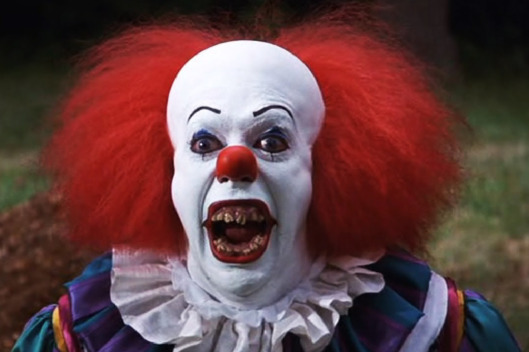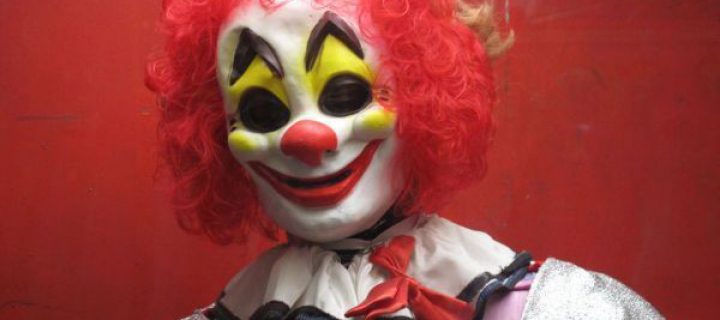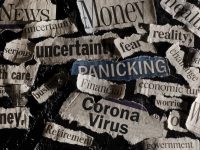We’re glad we’re not the only ones scared of clowns – they give lots of people the creeps! It turns out that this discomfort with clowns stems from the fact we simply don’t trust them.
You might know one of these types of friends: the person that’s always had an irrational fear of clowns.
Bozo-based hysteria has escalated to a high these past couple of months, evidenced by scary accounts in South Carolina of clown-like figures attempting to lure children into the woods. Hostile, knife-wielding clowns is a visceral image, and only now have incidents like the one in South Carolina spurred copycats.
This is a completely justifiable reason to fear clowns, especially if you feel as if your life is at risk. But clowns have been giving people the willies for years, regardless of an intent to harm, or humour.

So what’s the underlying reason why some people are simply subconsciously frightful of clowns?
Rami Nader, PhD, a psychologist and director of the North Shore Stress and Anxiety Clinic in North Vancouver, British Columbia, says a lot of our discomfort with clowns stems from the fact we simply don’t trust them.
“They have these large, artificial, painted-on expressions, which you know don’t actually represent how that clown is feeling because nobody can be happy all the time and yet the clown has a big happy smiling face all the time,” he says.
“In essence, you sort of know that it’s lying to you in terms of the presentation.”
Clown mannerisms are another factor that makes us feel uneasy in the presence of clowns. Frank McAndrew, PhD, a professor of psychology at Knox College, specifically studies this creepiness.
“People are afraid of clowns because they are so mischievous and unpredictable, and unlike vampires and ghosts, they really exist and could possibly cause trouble for you,” he says.
Your standard clown behaviour, like throwing pies or spraying people with water via fake flowers, creates a sense of discomfort and distrust, which leads to fear and anxiety.
And let’s not forget how some cynical clowns are portrayed in pop culture. There’s no better example than Stephen King’s It, who depicts clowns as more demonic than human.

“You see a film with a creepy, evil clown, and it changes the way you perceive clowns in the future, or could potentially do that,” says Nader. “With this kind of clown hysteria going on, this is probably going to affect people’s view of clowns moving forward.”
Luckily, most people’s fear of clowns aren’t debilitating for the most part, says Nader.
“Unless you happen to be a circus performer who has to work a lot with clowns, for the most part we generally don’t have to interact with clowns in our society, and it doesn’t cause any distress or interference in your life at all.”











